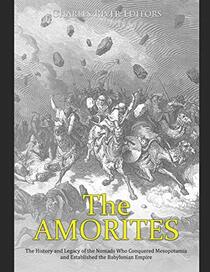In trying to prove the historicity of the Bible, researchers have long searched for information about the Amorites. We are still not certain of some facts about the Amorites, but we are getting closer. From the Old Testament, we know that the Amorites were enemies of Israel.
The Amorites seemed to have belonged to several sub-tribes; they didn't necessarily move together, but when they migrated, they overwhelmed Mesopotamia and northeastern Syria by about 1800 BCE. Amorites established all of the important political and city-states of this era, including Babylon, Mari, Assyria, Estnunna, and Yamhad. Not much is known of the Amorites because they absorbed the religious practices of other countries and used cuneiform writing and the Akkadian language. They even used the local architectural styles.
It seems that the western Semitic ethnic group known as the Amorites entered Mesopotamia and Syria from the Arabian Desert. Amorites and Hurrians entered the region as the Ur III Dynasty fell. Hammurabi, an Amorite of Babylon, unified most of Mesopotamia under his rule and his successors mostly were able to keep the empire together.
As the Amorites fade from the picture, their cousins, the Aramean people came out of the Syrian desert to disrupt the peoples o the Near East (as their Amorite cousins did 1000 years before). However, the Arameans brought their language, which became the lingua franca of the Near East.
The Amorites seemed to have belonged to several sub-tribes; they didn't necessarily move together, but when they migrated, they overwhelmed Mesopotamia and northeastern Syria by about 1800 BCE. Amorites established all of the important political and city-states of this era, including Babylon, Mari, Assyria, Estnunna, and Yamhad. Not much is known of the Amorites because they absorbed the religious practices of other countries and used cuneiform writing and the Akkadian language. They even used the local architectural styles.
It seems that the western Semitic ethnic group known as the Amorites entered Mesopotamia and Syria from the Arabian Desert. Amorites and Hurrians entered the region as the Ur III Dynasty fell. Hammurabi, an Amorite of Babylon, unified most of Mesopotamia under his rule and his successors mostly were able to keep the empire together.
As the Amorites fade from the picture, their cousins, the Aramean people came out of the Syrian desert to disrupt the peoples o the Near East (as their Amorite cousins did 1000 years before). However, the Arameans brought their language, which became the lingua franca of the Near East.




